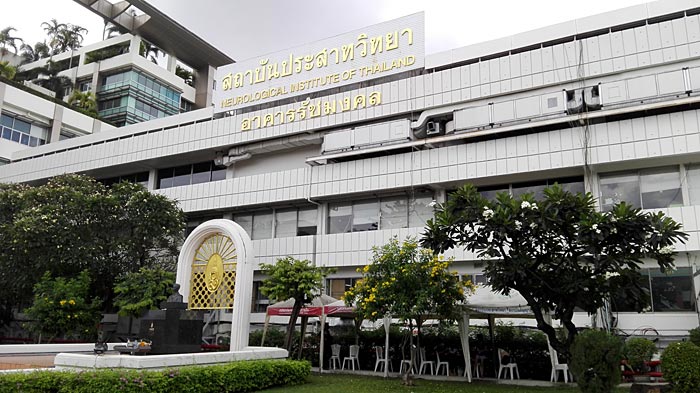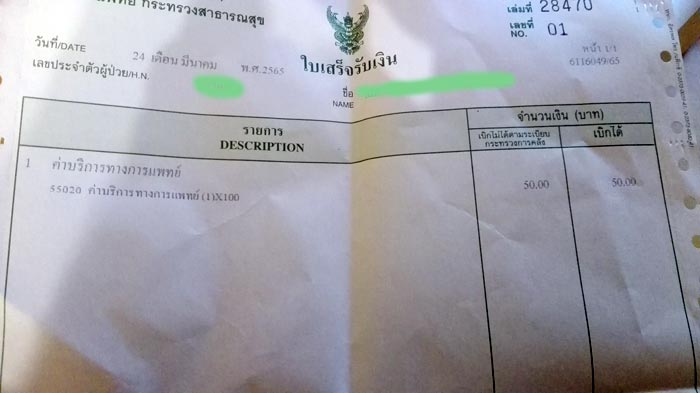Neurological Institute of Thailand
This is just a short information page, for expats in Thailand, and possibly for traveling foreigners.
If you start from Victory Monument BTS station and go westwards along Ratchawithi Road, you will pass a lot of health related facilities and major hospitals. Most, if not all, are state health institutes and public hospitals. You will need to walk about 15 minutes to get to the Neurological Institute of Thailand, which is located just a little bit further, after walking beneath an express way above. The Institute is located on the left adjacent to the main road, and can not be missed easily, with its name clearly stated on the wall close the road.

If you look at the image above, the main relevant entrance is just to the right of the pictured building (behind an Emergency Room section).
Since we did not know about it, and how it operates, we went to check it out one afternoon. Not much was going on in the afternoon in the main entrance room, just a skeleton staff was present. I was informed to come back in the morning. Between 7 and 9:30 A.M. patients have to register, and then wait to see a doctor or surgeon afterwards (they arrive like around 10 A.M.).
This facility operates like a tertiary referral clinic for neurological diseases and neurosurgery. If you have been seen and examined in another hospital or clinic, you should get a copy of relevant exams (like MRI, CT-scans, X-rays). A lot of hospitals give you a copy of these exams straight away. If they don't you should go back (best to go directly to the X-ray department), and they will be happy to provide you with these data. This seems to be normal procedure, and nobody feels offended.
When arriving at the Neurological Institute, I clearly was the only 'farang' within sight, and a lot of people were eager to help. I had to register, and fill out a one-page form with personal data, relevant medical history, and present complaint. The form is available in English language. The first thing I had to do, was to get the copy of my relevant exams to the X-ray department, where as I understand it, they were 'brought into the system'. When you see your doctor, he will be able to see the exams on a display monitor. There is a small fee of 200 Baht you will have to pay to have your data online.
Most of the doctors (I noticed on an online schedule) are neurologists (neurology seems to the called 'prasaat witthaya' in Thai). But there are also a number of neurosurgeons. In short, it is a good place to talk about your neurological problems, and get a second opinion. Depending on the reason of your visit, the triage nurse (or a nurse that is willing to help out) will register you in the right section.
I was clearly treated as a rarity, for visiting this institution, and as far as I could notice, everything went smoothly. I was able to see my doctor about 90 minutes after arriving. The neurosurgeon I consulted took out more time, and gave me more relevant advice, than I got at the private hospital I went to before, where they were giving me a different advice each time I visited, which was confusing. The doctor I visited spoke perfect English, which is a great help, since even if you are relatively fluent in the Thai language, it may be a bit taxing to relate medical problems in Thai.
I do not know whether surgery is performed at the Neurological Institute. It seems to be operating under the Ministry of Health directly. In any case, Ramathibodi Hospital is located just behind the Institute, and surely any relevant medical or surgical procedure can be performed there.

As you can see above, standard fee for medical services provided is 50 Thai Baht. As a foreigner I had to pay an extra 50 Baht, for a total of 100 Thai Baht, and I was quite satisfied with the service provided.

